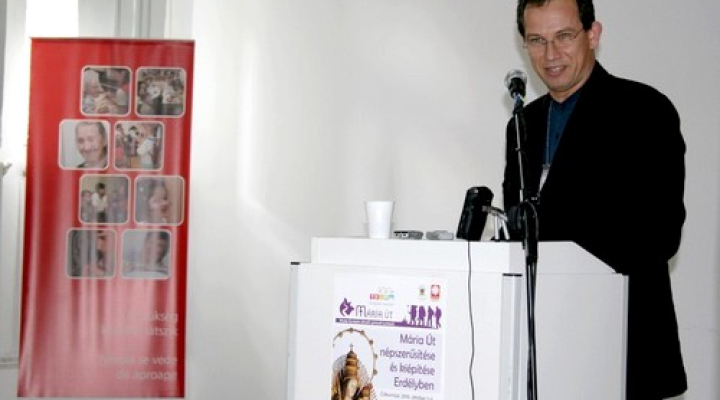Saint Mary's Pilgrim Road will have a Transylvanian section
The planning of the Transylvanian section of the Virgin Mary’s Road was the theme of the conference held in Miercurea Ciuc between 1-3 October when religious, public and political figures presented their insights on the pilgrim and tourist route.
The Caritas organization from Alba Iulia and the Kárpát Association of Transylvania (have) volunteered to aid the Hungarian Virgin Mary’s Road Association in the building of the Road stretching from Mariazell in Austria to Şumuleu-Ciuc, Romania. The pilgrim route aiming to preserve religious, cultural and historical values connects seven states through is pedestrian and bicycle roads. According to plans, the Transylvanian section of the road should be finished within three years.
MEP Csaba Sógor held his presentation entitled Transylvania’s touristic aspects from beyond the border on the second day of the conference when he reminded the audience that these days not only religious people set off on the pilgrim routes, but people with touristic interest in the particular area as well. Therefore, as he pointed out, The Virgin Mary’s Road must also provide opportunity to present our folk culture and built heritage beside the religious values.
The MEP also added that solidarity on all levels is needed for the Road’s building plans to run swiftly. „Austria’s, Hungary’s and Romania’s cooperation is not enough, Szeklerland, the Partium and Central Transylvania need to show solidarity as well. We can move forward with the pilgrim route if the church, the civic and political society all share in the responsibilities” – said Csaba Sógor who also proposed a modification in the route’s course in order for it to reach the Csango people living in Moldova.
The second day of the conference saw speakers alike ethnographer Vilmos Tánczos, archbishop Ft. Dr. György Jakubinyi, restorer Ferenc Mihály and Minister of Culture, Kelemen Hunor present their views on the subject. The Minister said that he is confident the issue will be discussed in the next joint Romanian-Hungarian cabinet meeting.











